
Executive Director of Housing and Residence Life Eddie Hull addressed the Student Government Association Senate and fielded questions about the recently announced changes to Residence Life in front of a room crowded with SGA officials, peer mentors and disgruntled sign-wielding students last night.
The address comes after student outrage over the firing of all current peer mentors and Apartment Living Advisors (ALA) – effective in fall 2012 – as well as the elimination of both positions last Wednesday. These changes are part of broad sweeping reforms to residence life which includes elimination of freshman housing in Southwest Residential Area, integration of positions over seeing both first-year housing and multi-year housing as well as the potential addition of in-house tutors.
Reminiscent of last Thursday’s silent student protest of the residence life changes during a Faculty Senate meeting, students, armed with poster boards, lined the walls of the Senate meeting last night and listened to Hull explain the reasoning for the changes, apologize for how he handled the announcement of the firings of 54 peer mentors and 19 ALAs and address criticisms of lack of student input on the new changes.
Hull explained that all of the changes were part of a plan to overhaul housing andcreate a community culture where students will mentor each other, have more responsibility over their own actions and be “adults.”
Hull argued that although peer mentors have been eliminated, their roles will be fulfilled by Residence Assistants and other students.
“We might be phasing out the role, but mentoring between peer to peer isn’t going to phased out … it shouldn’t require an official position, it should be part of our culture,” said Hull.
Similarly, the elimination of the ALA position is part of a pilot program to see how students in North Apartments self-rule. ALAs, similar to RAs in regular dorms, act as an authority figure in the apartments. Hull said that North houses some of the most mature students on campus and that North should be used as a “bridge” between dorm-life and off-campus living.
He did, however, warn that the program is experimental and “if it’s not going to work, we will know soon enough and make a mid-flight correction.”
While explaining his vision of increased student responsibility, he took responsibility for his own actions and apologized for the way that peer mentors and ALAs were notified of the changes to their programs.
“We did not do a job in rolling out that change,” said Hull. “We didn’t do for you what we should have and I apologize for that.”
Hull also noted that Housing and Residence Life rushed the announcement to combat untrue rumors such as that the RA position becoming unpaid and cultural floors were going to be eliminated.
Hull also responded to criticism that there was not enough student involvement in the process of implementing these changes by saying that although students were not exactly involved, concerns and opinions of the student body were taken into account when the decisions were made.
“Depending on how broadly or narrowly you define student input you might be right. Students were not at the table when we made decision, but saying that student voices were not [taken into account] would be unfair,” said Hull.
After his speech, Hull took questions from SGA senators, executive members, current peer mentors, RAs and other students. Questions focused on why students were not represented in talks, what type of student involvement should be expected in the future, and how students see RAs as enforcers and peer mentors as peers, and that the two cannot be combined.
Hull addressed these questions by saying that they are trying to change the culture in a way that will allow for better RA-student relationships and that students will not always have input on every decision.
Following the question-and-answer session, students voiced their opinions, with all opposing some, if not all, of the proposed changes. Following the other students, SGA President Yevin Roh spoke in a self-proclaimed “militant” speech.
Roh told the Senate that after Thursday’s protest he got a call from an anonymous administration insider who tipped him off about the changes earlier. The secret source said that administration was afraid of Roh and the protesters. And in his speech, Roh argued that fear may be the only way left to get to the administration.
“Apparently being democratically elected is not enough to be involved, to be respected as students is not enough to be included,” said Roh. “Then perhaps being worthy of their fear will work. Show them the strength of your voice. Let them know we are strong, we are united and we demand to have a place at the table where decisions are being made for us and about us.”
Roh said that the students must not accept anything short of a repeal of the new rules.
“There will be progress when these changes are rescinded, and we are included in the decision making process,” said Roh. “There will not be progress until the administration is completely transparent about the talks behind closed doors, and we can hear at the table with our own ears.”
Following speeches from students, SGA members and Hull, the Senate voted to pass a motion nearly two hours after Hull left the meeting that said that either Hull must work with the SGA to enact and discuss these changes, or they will vote “no confidence” in him.
The motion will be sent to University of Massachusetts President Robert Caret, the school’s Board of Trustees, Massachusetts Gov. Deval Patrick and the Boston Globe.
Motion sponsor and SGA Sen. Nick Barton said that he is not confident that the motion will be signed by Vice Chancellor of Student Affairs and Campus Life Jean Kim and made official, but it will make the point regardless.
Barton said he does not expect this to be signed by Kim.
Also during the four-hour long meeting with the highest senator attendance of the semester, the SGA passed motion that calls for a $3 raise in the Student Activity Trust Fund Fee from $94 to $97.
The raise will generate $60,000 more per semester for the SGA to fund EMS, a student emergency medical technician group, as well as possibly funding and bringing back the Collegiate Readership program which provides students with free newspapers like the New York Times, the Boston Globe and USA Today. But the raise needs to be approved by Kim and the trustees.
The SGA also passed motions to agree with the chancellor search committee guidelines for a new chancellor and allocate $2,185 for registration fees for the UMass Sport Parachuting Team.
Hull also announced that the Housing and Residence Life department approved new veteran housing as asked for by the SGA, before the SGA had to motion for it.
Sam Hays can be reached at [email protected].













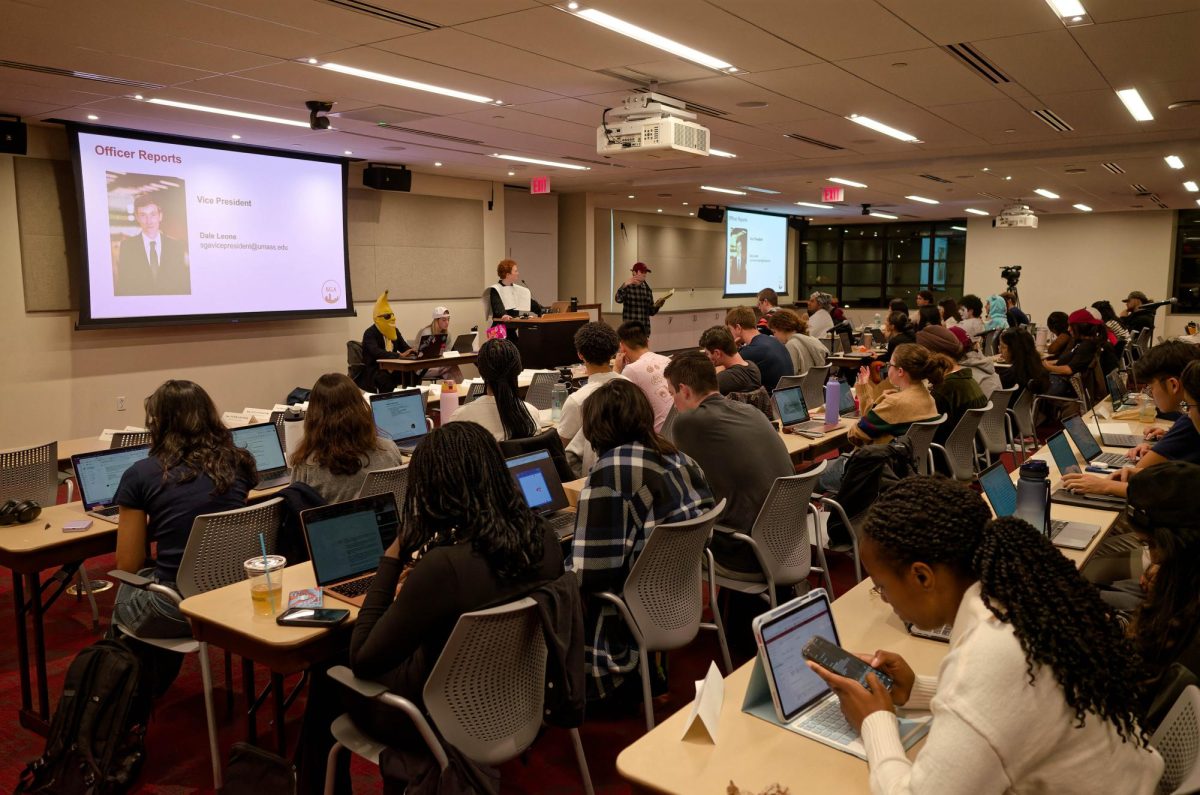
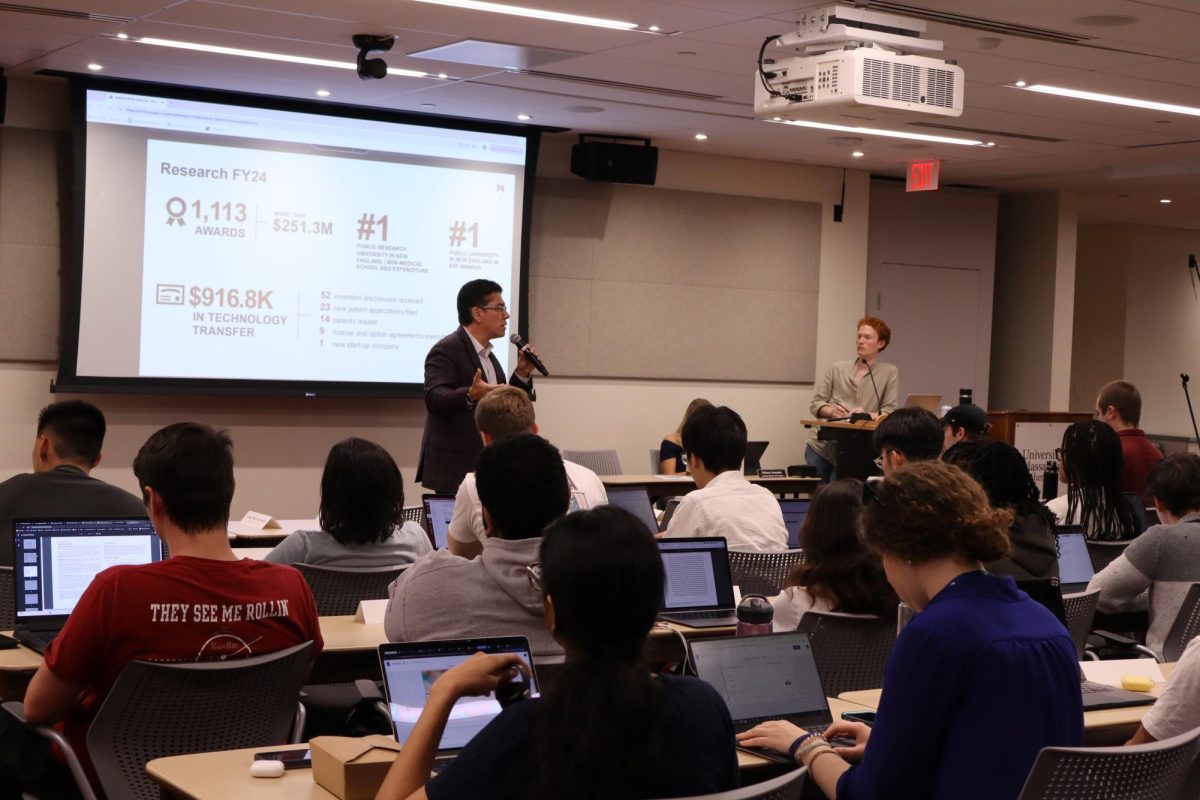
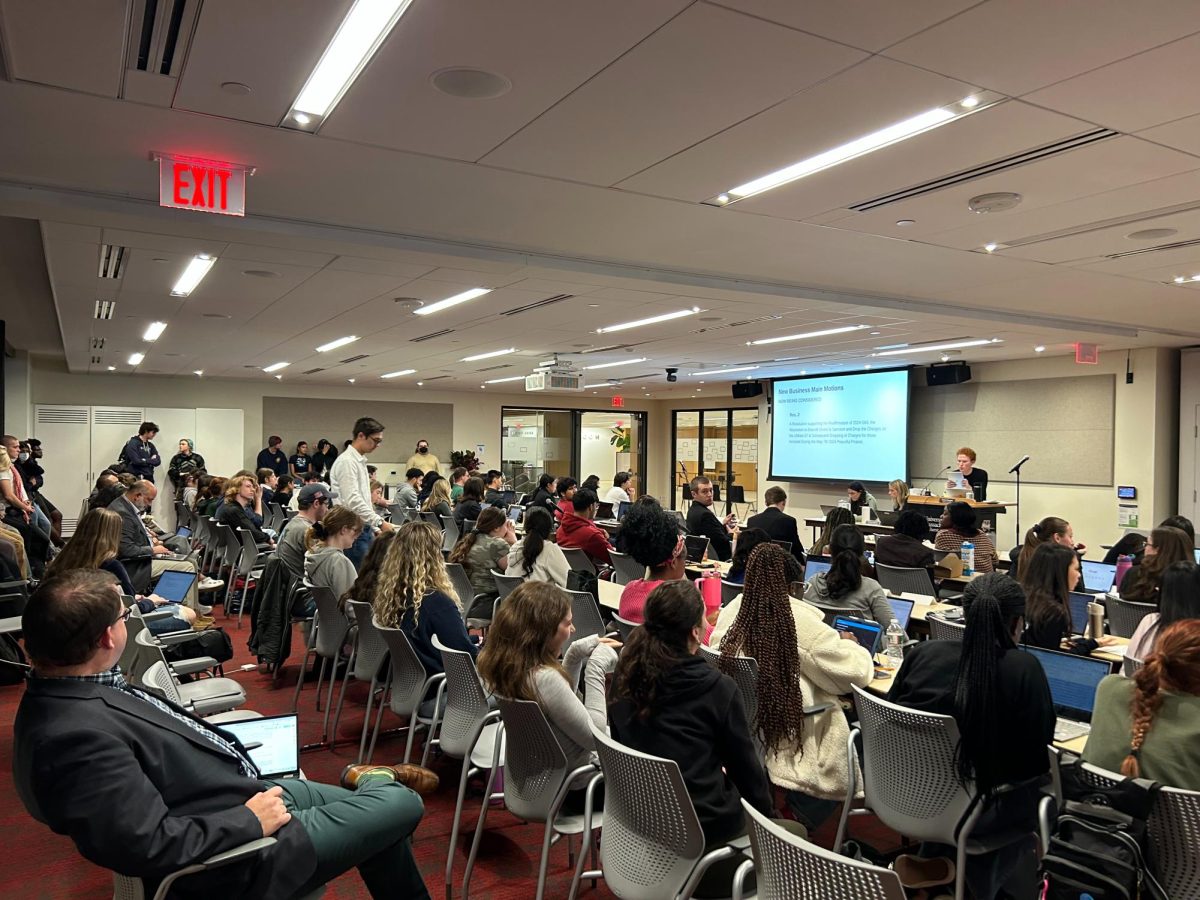
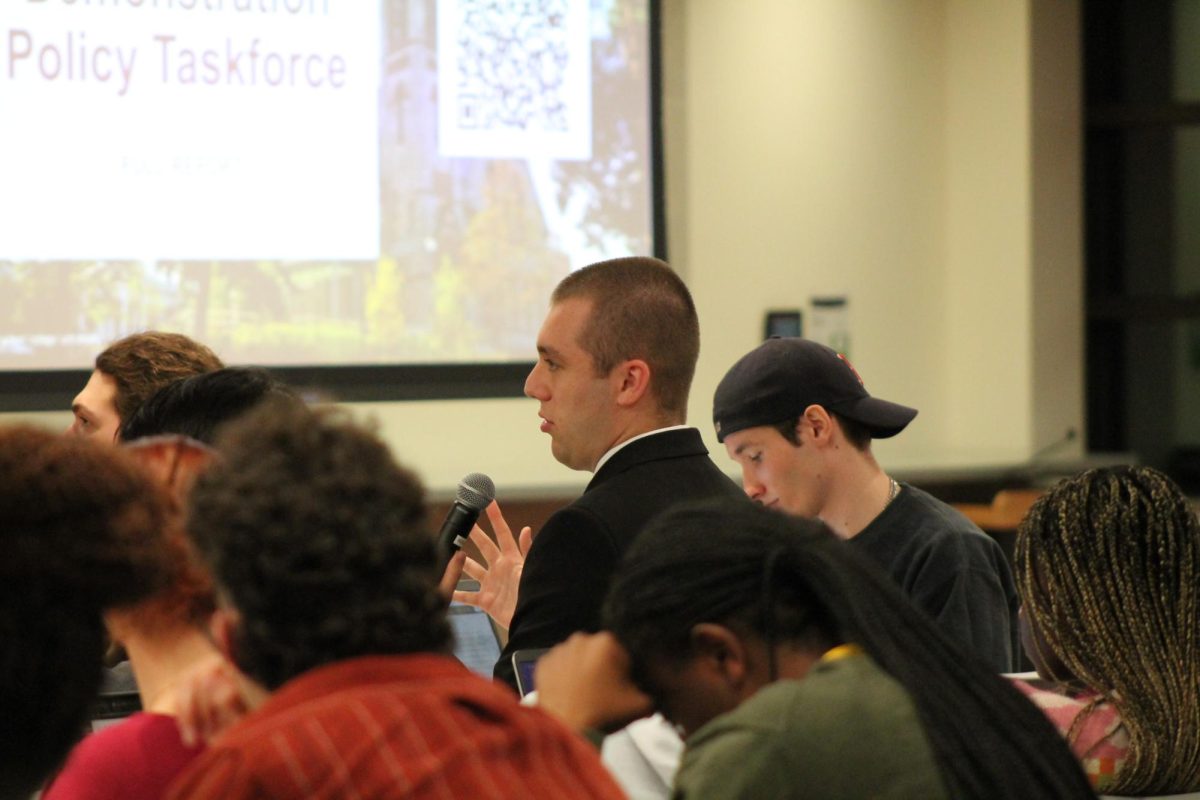
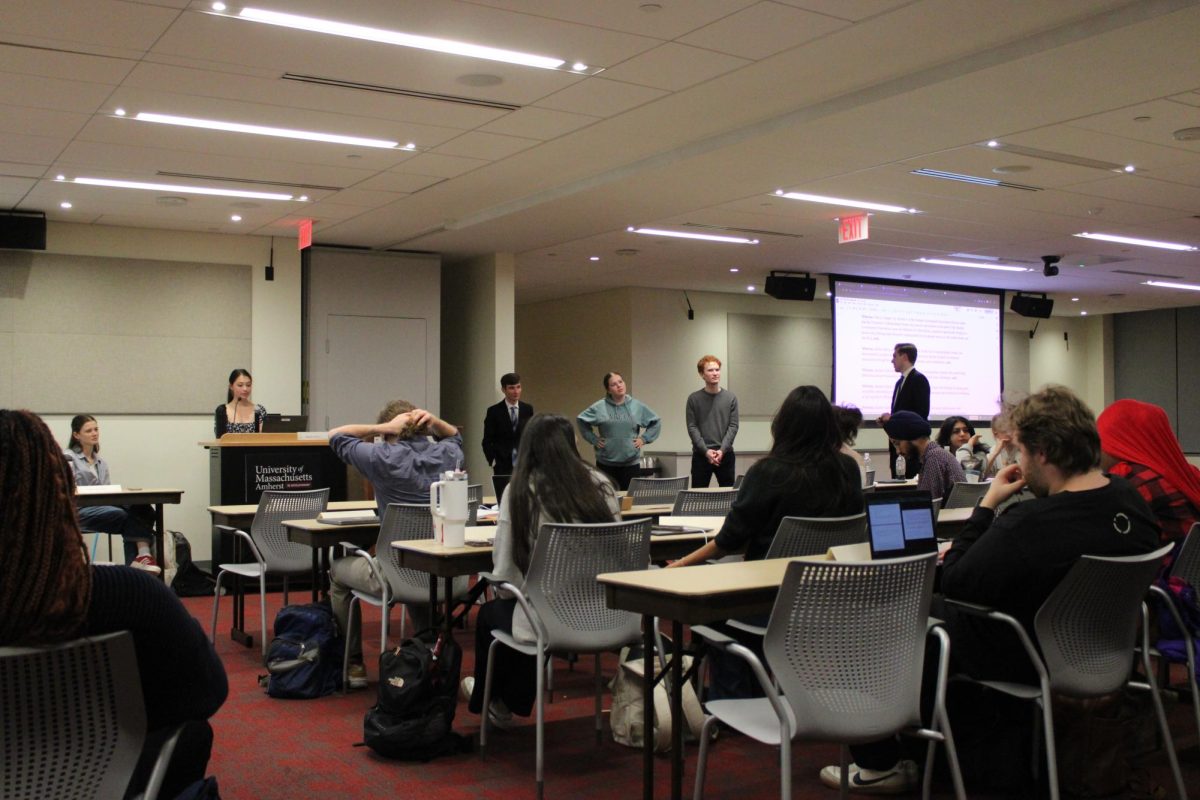
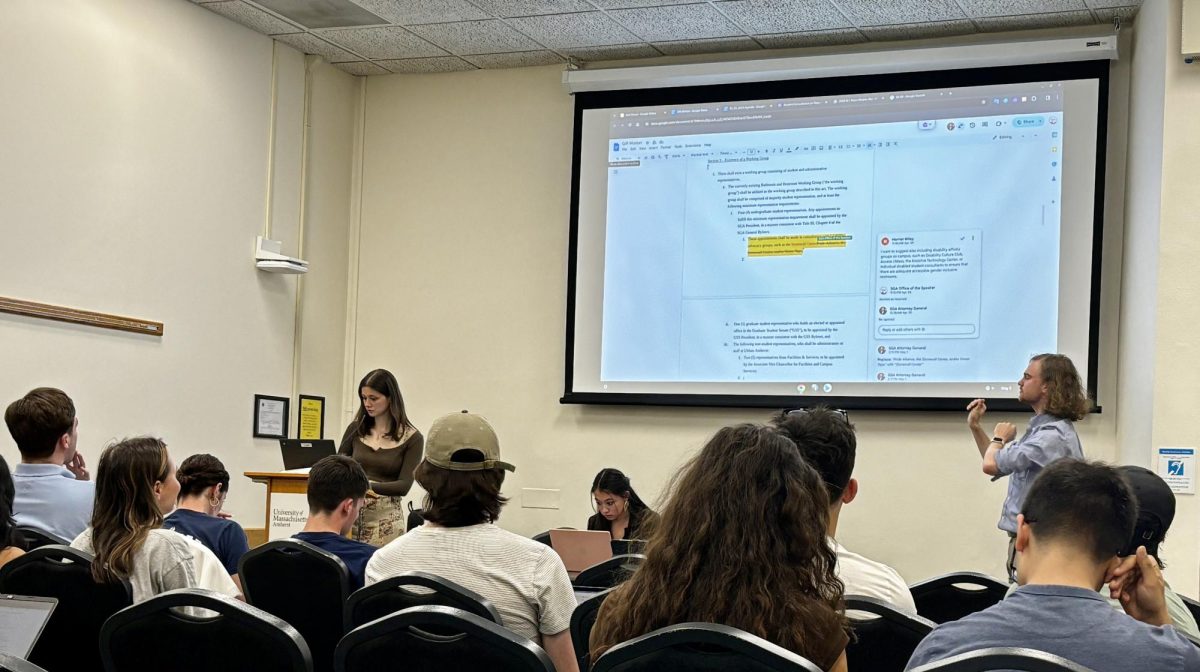
RDE • Dec 6, 2011 at 4:46 pm
Was anything said about the possibility of Orchard Hill becoming a first year residential area only?
Jarred Rose • Dec 6, 2011 at 12:28 pm
Actually Huh? to throw a little humor in, if you have ever worked with Mr. Hull, this is indeed a backwater dictatorship.
Huh? • Dec 6, 2011 at 9:53 am
A militant speech? This isn’t a backwater dictatorship!
Brian • Dec 6, 2011 at 2:06 am
Excited to see if they bring back the Collegiate Readership program. Picking up a copy of either the Times, Globe, or USA Today each morning of my freshman and sophomore year at Hampshire or Worcester was a help in studying journalism, and something I think many other students enjoyed and benefitted from as well. Nothing like a cup of coffee and ink-stained fingers.